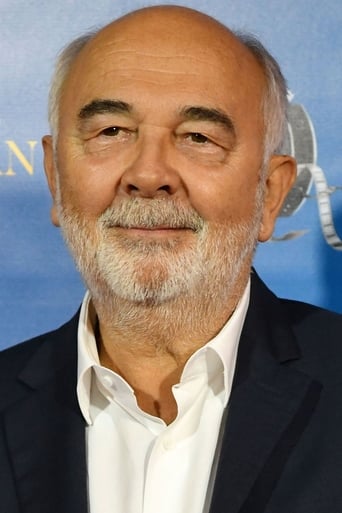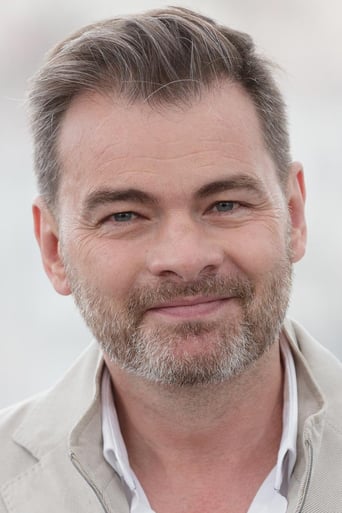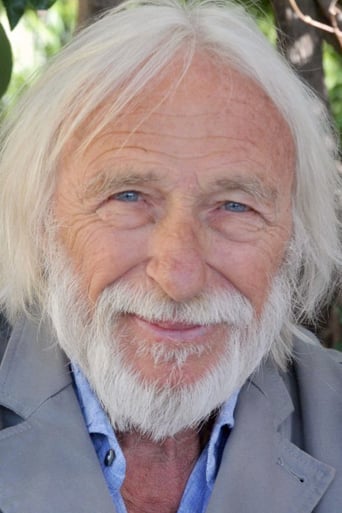Raetsonwe
Redundant and unnecessary.
Exoticalot
People are voting emotionally.
ShangLuda
Admirable film.
Humaira Grant
It’s not bad or unwatchable but despite the amplitude of the spectacle, the end result is underwhelming.
krzysiektom
A very nice cinematic experience. Everything was top notch - direction, script, acting, singing, scenography and costumes. The film leaves a warm feeling despite presenting many dark sides of life in Fauborg (outskirt of Paris) in the 1930s, like fascism, workers' strikes, unemployment, marital betrayal, loneliness. The director incredibly managed to mix pathos and sentimentality with sarcasm and sardonic humor in the same scenes, which prevented the film from being corny. Includes probably the best written funeral scene ever in my opinion. The songs are not remarkable, with one exception - a song about love where the main female character is virtually declaring love to a man from the stage. The female is a revelation, talented and beautiful young actress with good singing voice. I will gladly watch the film again.
druid333-2
If this film had been produced 60 to 70 years ago,it probably would have been directed by Jean Renoir and starred Jean Gabin as one of the central figures. 'Faubourg 36' (or as it is being distributed in English speaking countries as 'Paris 36')is a film that takes place in Paris, just before world war 2,when political tensions were at a boiling point between left leaning French & their ultra conservative right wing counterpoint (which would eventually embrace the Nazi party in Germany,especially when Hitler marched into Paris in the 1940's). A (failing)theatrical troupe,bent on preserving their beloved theater tries to pull things back together,they get support from some of the locals (including an alleged Communist,who claims he was in the Red Brigade in Russia),a young lass trying to break into the singing profession,a (mostly)unfunny comic & enough well meaning persons to try and bring things together. A corrupt local political figure,who wants to do little more than bring the ruination of the theater also looms. The film is complimented by a cracker jack cast of French professionals who turn in a splendid job of acting. The screenplay, although something of an overstuffed sandwich of sorts,is still well played out. The film features several songs,most of which are performed by the cast,themselves. At times,this film has a Busby Berkley feel to it (which is not a bad thing). In French with English subtitles. Rated PG-13 by the MPAA,this film contains a bit of rude language,some suggestive material that parents of very young children may not appreciate,and some violence (but nothing too gory that could disturb some sensitive audiences). Well worth a look.
Chris Knipp
Christophe Barratier found box office success in France in 2004 with his cute feel-good story The Chorus/Les choristes, which was about how a new music teacher brought humanity to a rural French reform school just after WWII by starting a boys' chorus. This also made newcomer Jean-Baptiste Maunier into a French teen icon. Faaubourg 36 is a glitzier, more musical (as in song-and-dance), more nostalgic period drama meant to evoke French films of the Thirties through its focus on a little working class Paris music hall called Chansonia. As the film opens, financial problems lead a mean magnate called Galapiat (Bernard-Pierre Donnadieu) to shut Chansonia down. But it's 1936, and in the spirit of socialist fervor (and universal labor-management strife) signaled by the rise of Leon Blum's Popular Front, the employees decide to take over Chansonia and run it themselves, on no money. This effort is spearheaded by the stage manager Germain Pigoil (Gerard Jugnot). Pigoil's life has filled with heartbreak. His dancer wife Viviane (Elisabeth Vitali) has left him and the state has chosen to take away his beloved accordionist son Jojo (Maxence Perrin) and send him to live with Viviane.Trying to create triumph out of adversity, Pigoil designates an awkward song-and-dance guy called Jacky Jacquet (Kad Merad) and a militant (and Jewish) leftist called Emile "Milou" Leibovich (Clovis Cornillac) to reopen the shuttered musical theater in uneasy cooperation with Galapiat. The show must go on! This seems a feeble prospect without financial backing, till the three men get lucky when a young newcomer nicknamed Douce (Nora Arnezedzer) turns up at tryouts. She's talented, pretty, and clearly a crowd-pleaser capable of selling tickets and keeping the place going. Her presence provides further insurance when the local boss turns out to like her.The ups and downs of the plot include depiction of the pervasive anti-Semitism of the extreme Right and the exacerbated hostilities between labor and ownership. There are little tragedies, but everything is softened and ends happily. Seekers of cinematic edge should look elsewhere. I found it hard to engage with the story, because it's too derivative, stereotypical, and diffuse. Production values are excellent and the music hall performances, if sometimes borderline cringe-worthy, carry through the period flavor. And there are some catchy tunes and sprightly stage turns as well.I saw this film when it was screened last summer at Saul Zaentz Studios in Berkeley by Tom Luddy, Co-Director of the Telluride Film Festival and the consensus of those then present seemed to be that 'Paris 36' (which has been picked up by Sony Pictures Classics) wasn't interesting or unusual enough to show at Telluride.But 'Paris 36' seems likely to do well with the more general US subtitles-film audience, and makes perfect sense as the "gala opening film" for the FSLC-UniFrance co-sponsored Rendez-Vous with French Cinema--though in my opinion last year's first night presentation, Claude Lelouch's 'Roman de Gare,' made a much more interesting opener.
daphne4242
This is a beautiful film which captures much of the feel of great French films of the 1930's. It's also a love poem to Paris. It helps that Nora Arnzeder is so gorgeous and all the actors give strong performances. The story is really a fairy story with a political twist. A small music hall in Paris is forced to close down in 1936. Because this is is the year of the Popular front in France, when factory occupations spread across the country, the performers decide to take over the theatre and run it themselves. They get an extraordinary stroke of luck when a young girl, Douce, turns up hoping to get a break in the theatre. Double luck because not only is she a brilliant performer but the local boss fancies her and allows the theatre to stay open. There are some serious themes touched on, including the pervasive anti-Semitism of the extreme Right at this period but the film is overwhelmingly joyous, which is as it should be. The Popular Front didn't happily, which was a tragedy for France, but this film does, as do all good fairy tales.





